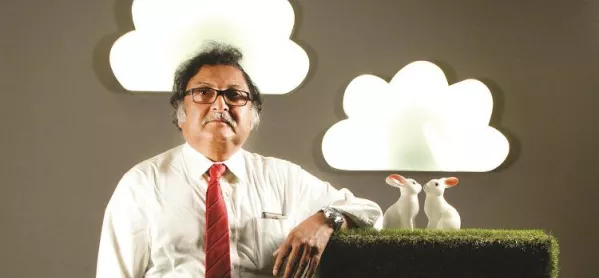Sugata Mitra: schools should scrap the 3Rs
Share
Sugata Mitra: schools should scrap the 3Rs
https://www.tes.com/magazine/archive/sugata-mitra-schools-should-scrap-3rs

Schools should scrap teaching the three Rs and instead replace them with “comprehension, communication and computing”, a leading academic has said.
Professor Sugata Mitra, of Newcastle University, suggested that the conventional skills taught to children today were mainly “obsolete” and could be carried out by machines.
Instead, students should only be taught the basics and more time should be spent on learning how to process the information they are given.
“Reading, writing and arithmetic should be deemphasised and replaced with comprehending, communicating and computing. That’s the world we live in today,” Prof Mitra said at the education technology conference Bett in east London today.
“I know these are sacrosanct - but I would like to question that. Why is it so important that it is taught for years and years? Is it not conceivable to think of an app where you can point it to a piece of Japanese text and it reads it back to you in English. If that app exists, would it be important to be able to read that Japanese?
“No, it is important to understand what that text is saying. Comprehension is more important than the process of reading. And there is too little of that happening in schools.”
Similarly, the process of learning handwriting for years was “absolutely unimportant”, he said.
“The process of writing is not as important as the process of communicating. Children can do that in many different ways and those little devices help them to do that,” he added.
Learning how to undertake long division and multiplication was also a non-essential skill, Professor Mitra continued.
“How many people in this room would ever use that method? Machines can do that. What we need to teach children is how to compute an answer.”
The suggestion of replacing the three Rs flies in the face of current government policy, however, which has placed a growing emphasis on the teaching the basics.
The controversial professor, whose famous work Hole in the Wall showed how children in Delhi could learn independently if provided with access to the internet, also called for the “internet” to be taught as a discrete subject.
You've reached your limit of free articles this month. Subscribe for £1 per month for three months and get: